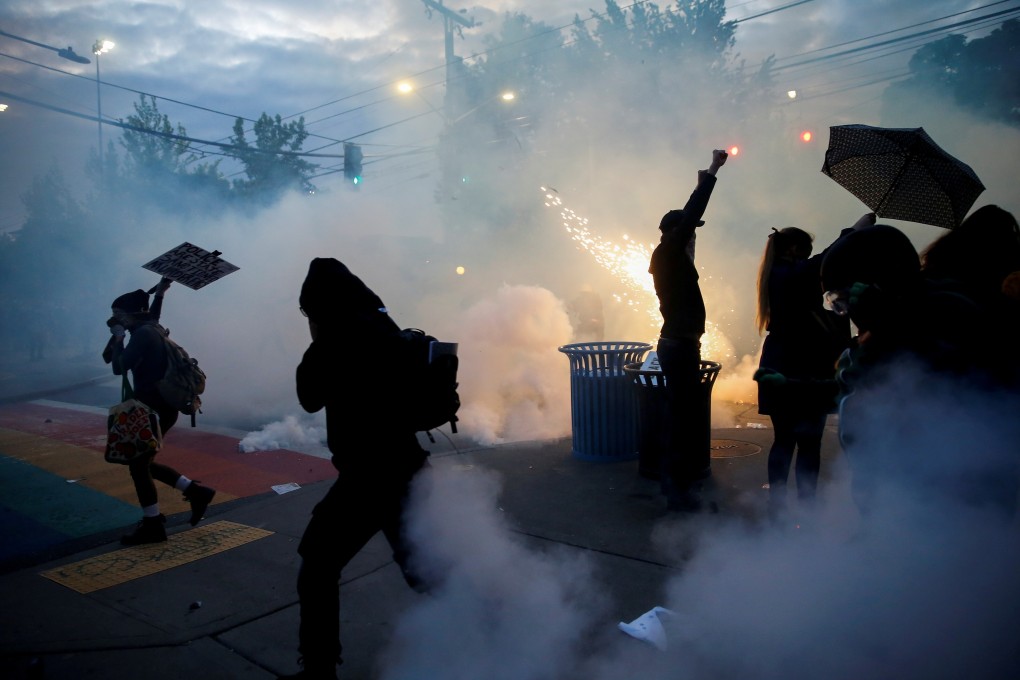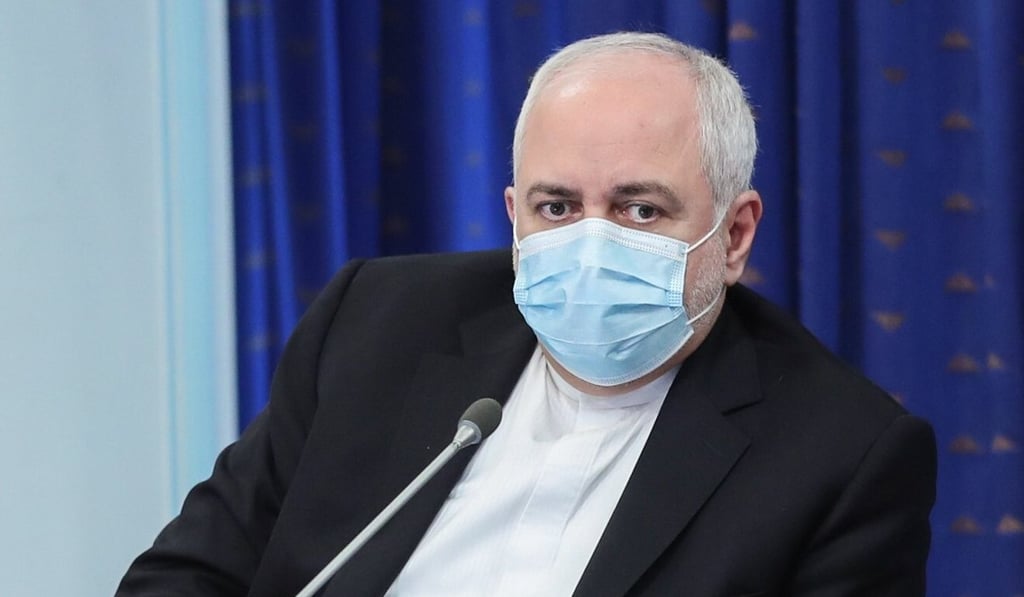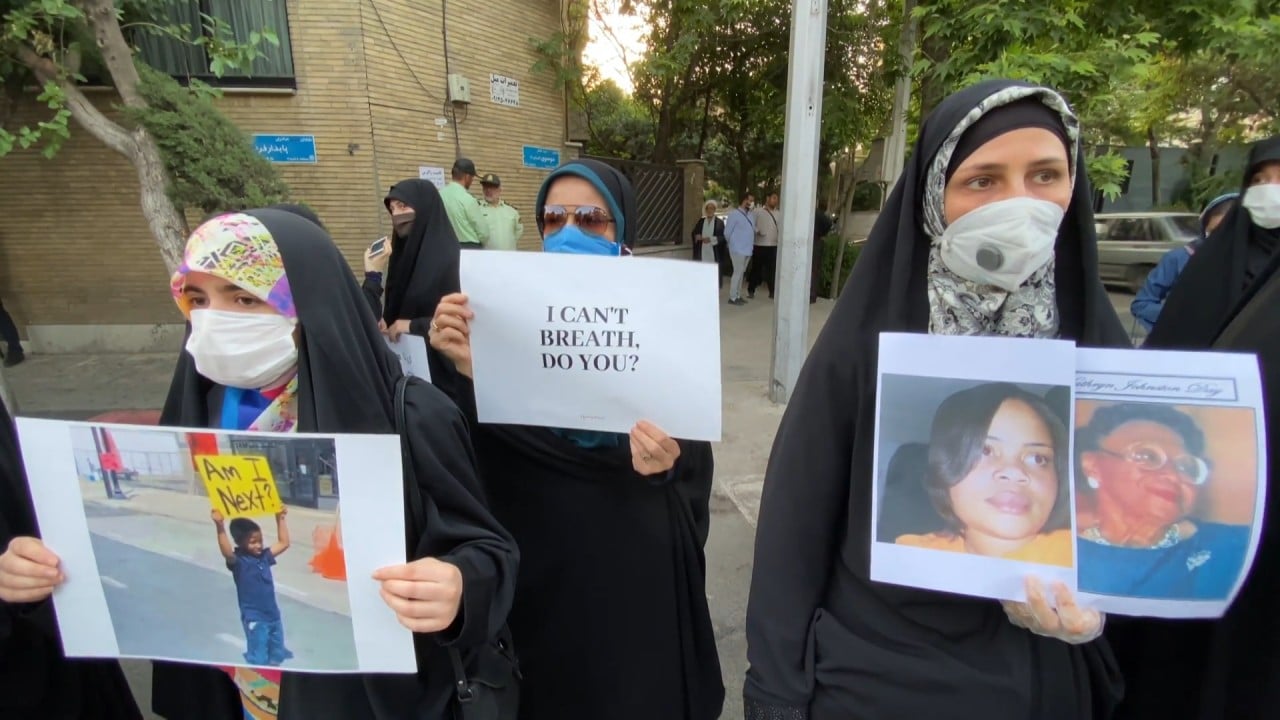US, Iran are again trading barbs on Chinese social media – this time over protests, economic crisis
- Embassies in Beijing engage in heated exchange in Mandarin on popular Twitter-like platform Weibo
- Many users offer support for the Iranian posts and weigh in to criticise the American ones

The Beijing embassies of the United States and Iran are again trading barbs on popular Chinese social media platform Weibo, where the diplomatic row is being watched by a vast local audience.
It was a translation of a post by Foreign Minister Mohammad Javad Zarif on Twitter, which is blocked in China, slamming the US government for “cracking down and jailing” protesters. Iran’s embassy has nearly 400,000 followers on Weibo.

On Weibo, as the battle plays out in Mandarin, many Chinese social media users are flooding the Iranian posts with support – and weighing in to criticise the US embassy ones. Weibo, which is subject to China’s strict censorship regime, has emerged as a forum for such exchanges between Iran and the US, along with Twitter, while sites such as Facebook and Instagram were earlier reported to have censored pro-Iranian posts to comply with US sanctions. Iran and the US cut diplomatic ties in 1979 after the Islamic Revolution. They are at odds on a range of issues including Washington’s decision to abandon a deal to curb Tehran’s nuclear programme and impose crippling economic sanctions on Iran.

01:51
Students in Iran rally in solidarity with George Floyd protesters in the US
